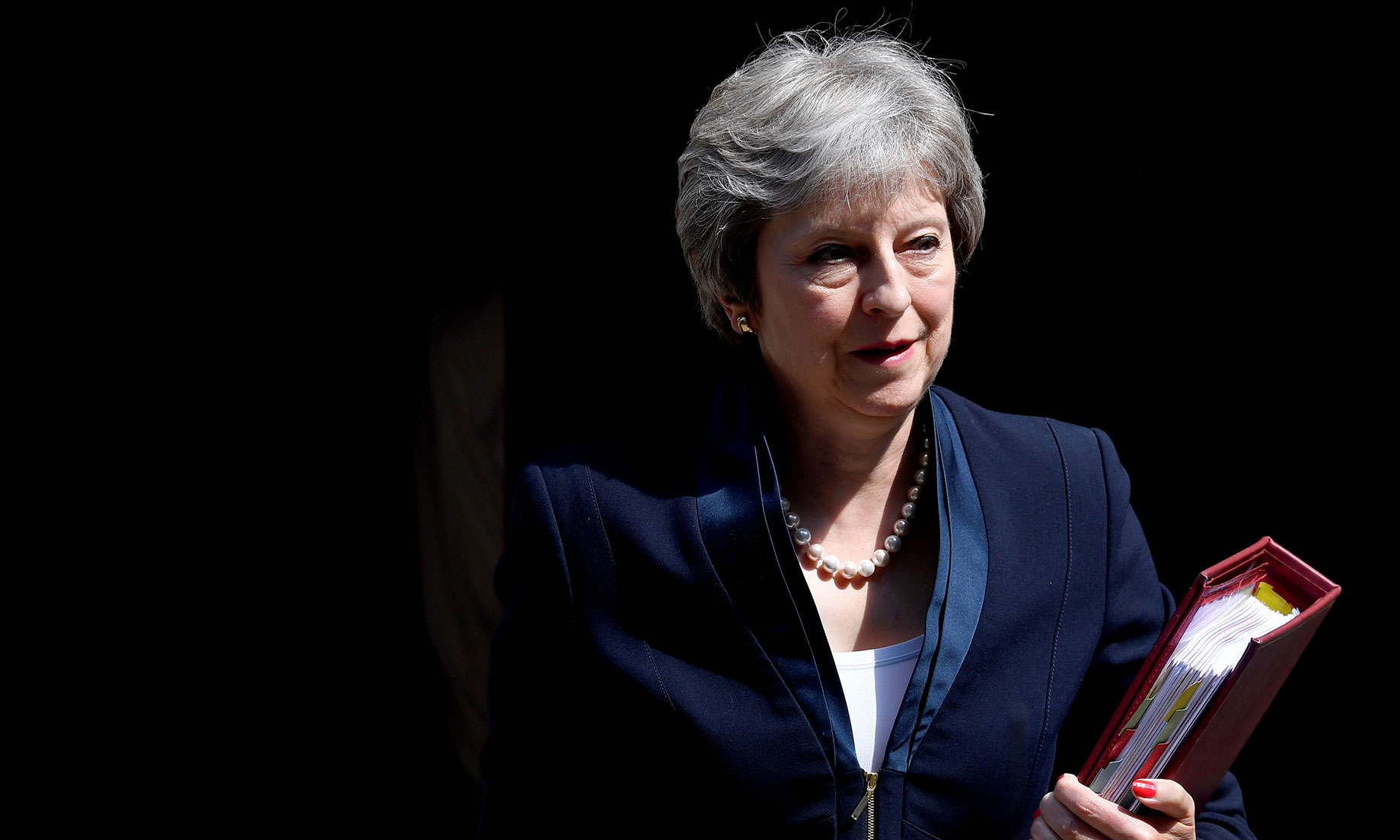London, Feb 8 (NNN-AGENCIES) – The British prime minister was adamant she would secure legally-binding changes to the Irish backstop clause in the United Kingdom’s withdrawal agreement with the European Union following a day of meetings in Brussels where the bloc’s leaders unanimously said the deal would remain firmly closed to further renegotiation, although they offered wiggle room on the wording of the non-legally binding political declaration.
Theresa May was compelled to return to the Belgian capital, the EU’s institutional heart, after UK lawmakers, first of all, voted against the withdrawal agreement and then passed an amendment to it requiring the conservative leader to find changes to the backstop, the safety net policy to protect the open status of the border in Ireland should future talks with the bloc collapse.
“We’ve had robust discussions but they’ve been constructive,” May said as she left the talks. “What I’ve set out is our clear position that we must secure legally-binding changes to the withdrawal agreement to deal with the concerns that parliament has over the backstop,” she added.
The Irish backstop in its current form sent schisms through May’s Conservative Party, whose hardline members fear the safeguard could bind the UK to the EU indefinitely.
The Democratic Unionist Party, a Northern Irish group whose voting power in the House of Commons, the UK’s lower chamber of lawmaking, keeps May’s minority executive afloat, also rejects the measure as they say it would in effect subject the UK territory in Ireland to different rules to the rest of the UK.
May was on the hunt for legal changes to the document that could either grant the UK powers to withdraw from the backstop arrangement unilaterally or provide a concrete expiration date for the mechanism, should it ever come into use. Both the EU and the UK want to avoid it.
Top EU officials have doubled down on their stance that the withdrawal deal could not be touched, although have shown more willingness to edit the phrasing of the political declaration, which is the accompanying text to the 585-page deal and serves more like a statement of goodwill for a deep future relationship.
Jean-Claude Juncker, the president of the European Commission, and May released a joint statement.
“President Juncker underlined that the EU27 will not reopen the withdrawal agreement, which represents a carefully-balanced compromise between the European Union and the UK, in which both sides have made significant concessions,” the statement said.
“President Juncker however, expressed his openness to add wording to the political declaration agreed by the EU27 and the UK in order to be more ambitious in terms of content and speed when it comes to the future relationship,” the statement added.
Negotiating teams would meet again before the end of February, raising the chances discussions could trundle towards the official Brexit date: Mar. 29.
While the UK grapples with internal divisions over Brexit, which was narrowly backed by the electorate in a 2016 referendum, the EU’s exasperation at the process has occasionally made itself visible.
Speaking to a press conference with the Irish prime minister, Leo Varadkar, on Wednesday, European Council president Donald Tusk said he wondered “what the special place in hell looks like for those who promoted Brexit without even a sketch of a plan on how to carry it out safely.”
The comments were met with backlash in the UK.
May met with Tusk on Thursday and said she rebuked the former Polish prime minister for his choice of words.
“First of all, I’ve raised with President Tusk the language that he used yesterday that was not helpful and caused widespread dismay in the UK,” May said. “The point I made to him is that we should both be working to ensure that we can deliver a close relationship between the UK and the EU in the future and that’s what he’s focusing on,” she added.
Tusk appeared to expect to be rebutted for his comments, as he left the stage chuckling with Varadkar who warned him he would get in trouble.
Jeremy Corbyn, the leader of the left-leaning Labour Party opposition, wrote to the PM saying he would back her withdrawal agreement if she made five alterations, which included the addition of remaining in the customs union.
The move sought to smooth over disagreements regarding the border between Northern Ireland and the Republic of Ireland but angered pro-remain Labour members.
The open border in Ireland, now all but invisible, is a 499-kilometer (310-mile) geographical line running through countryside, farmland and bisecting main roads and even rivers, and is enshrined in an international peace deal that in 1998 helped to extinguish decades of sectarian and political violence in Northern Ireland; a period known as the Troubles.
Over 3,000 people died during the Troubles, which saw unionist paramilitaries from largely Protestant areas –who consider themselves to be British – and republican militias from mostly Catholic areas – who sought a re-unified Ireland – trade terror and bloodshed.
Its status is not only crucial for the continuation of smooth cross-border trading but it has deep socio-political significance. It is widely seen as a symbol of the success of the ongoing peace deal.
Neither the EU nor the UK want to return to the hard border.






